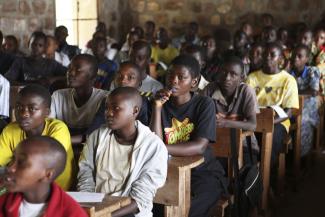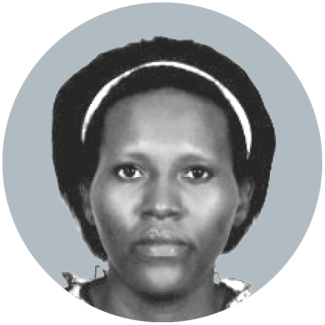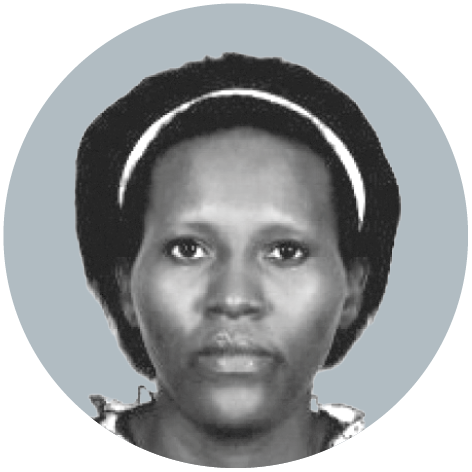Children’s rights
On society’s fringes

Nine-year-old Jérémie and his friends hang out all day and much of the night in the streets of Bujumbura, Burundi’s largest city. They have lived this way for more than two years and appear likely to continue doing so for the indefinite future.
“When my mother died, my father remarried and my stepmother was not kind to me,” Jérémie explains. “She didn’t give me food anymore. So I dropped out of school and came to Bujumbura. My friends and I had no transport tickets, so we rode into the city by hanging on to the back of a petroleum tanker truck.”
Jérémie’s story is sadly familiar. Thousands of Burundian children face poverty, violence and encroachment on their legal rights, including their right to education, accessible health care and freedom from exploitation.
According to the National Association of Defenders of Children’s Rights in Burundi (known as FENADEB – Fédération Nationale des Associations engagées dans le Domaine de l’Enfance au Burundi) recorded violations of children’s rights grew from 1,140 in 2019 to 1,310 in 2020.
Recorded cases are of course just the tip of the iceberg. Most instances of child neglect and abuse never appear in official statistics. The recorded cases involve a range of rights infringements, including not issuing a child identity papers needed to access health care, lack of adequate food and water and requirements to work under exploitative conditions (see box). Other violations of children’s rights include under-age marriage, forced displacement due to wars and natural disasters, sexual exploitation and violence.
On paper, none of this should be happening. Under a 2005 law, children between ages seven and 13 have a right to free and compulsory education. Under another law passed that year, children under five and expectant mothers have a right to free health care. In addition, Burundi’s parliament has passed laws supporting children’s rights to physical security and freedom from forced marriage. And the government has ratified relevant international agreements, including the 1989 UN Convention on the Rights of the Child.
Practical barriers
Yet practical barriers still block many children from exercising these rights. For example, informal fees, including charges for books and materials, mean that primary education is not entirely free. Moreover, fees apply to secondary education, causing many teenagers to drop out at that stage.
Further, almost half of all Burundian children live more than 30 minutes away from the nearest medical facility, putting health care out of their reach, according to Humanium, a children’s rights NGO. Health problems among Burundi’s children are widespread: Half of the country’s children suffer from stunting due to malnutrition, the NGO says. Malaria, malnutrition and respiratory diseases affect many children.
A further barrier is absence of official papers. Many children cannot attend school or access health care because they lack a birth certificate – in violation of their right to an identity. About one-fourth of births in Burundi between 2008 and 2014 were not registered, according to UNICEF, the UN Children’s Fund.
While the current number of unregistered births is unknown, the lack of a birth certificate is most likely to affect children born to Burundians who had fled the country and children born to couples who are not legally married. If one or both parents themselves lack birth certificates, this lack of official identity is likely to be passed on to their children.
Civil unrest has made matters worse. More than half of the refugees who fled Burundi during wars in 2015 were children. Many were subsequently repatriated. But by 2019, over 78,000 children were still registered as internally displaced across Burundi’s 18 provinces, according to Humanium.
The greatest barrier to enforcing children’s rights is poverty. UNICEF reported in 2016 that 78 % of Burundian children live in monetary and/or non-monetary poverty. The country has large numbers of children who must fend for themselves, as their parents either cannot support them or have died of disease.
Most often such children end up living on the streets. They can be found in droves in Bujumbura, as well as in Gitega, the political capital, and in other cities such as Rumonge, Ngozi and Kayanza. Most of them come from poor families in the country’s interior.
Typically they subsist by begging or by performing a range of odd jobs. Some of them turn to petty crime. Seven children were prosecuted for robbery, according to the 2019 report of the Independent National Commission on Human Rights in Burundi (known as CNIDH – Commission Nationale Indépendante des Droits de l’Homme du Burundi).
Return to families
The throngs of children on Burundi’s streets has not escaped official attention. For the past three years the Ministry of Solidarity and Human Rights, together with provincial governors and the police, has run “return to families” programmes in an effort to get these children off the streets. Under these programmes, street children are picked up, sent first to centres where they are told about the dangers of living on the street and then sent to their villages. So far, the programme has not produced the desired results. For the same reasons that they left in the first place, the children soon leave their villages again and find their way back to the streets of a big city.
The CNIDH commission is taking a different approach. It has set up a hotline to report cases of child abuse. It also is taking a closer look at guardians who purport to look after children, ensuring that they act in the best interests of children in their care. At the same time CNIDH is planning to establish a fund to help vulnerable families to look after their children. And the commission is proposing a law that would punish anyone who sends children to beg on the streets.
Similarly, UNICEF Burundi is focusing on helping children to realise their right to a safe and nurturing environment. In its 2019-2023 country programme, UNICEF suggests increasing the amount of data and other evidence on child protection issues and encouraging development of a new national child protection policy. All these measures can help. Ultimately, though, it is up to the Burundian government to enforce children’s rights which are already provided under existing laws.
Mireille Kanyange is a journalist for Radio Isanganiro in Burundi.
mika.kanyange@gmail.com









